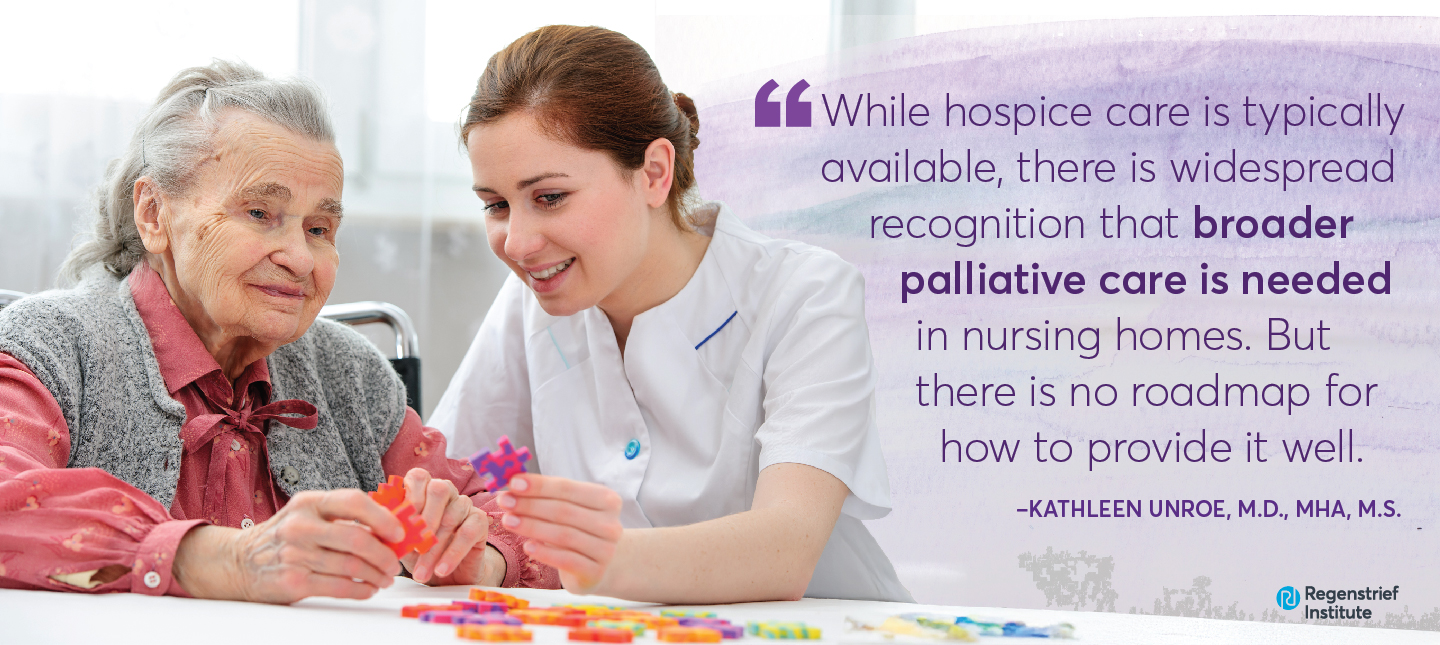The mission of this center is to develop team science that combines innovative health information technologies with rigorous health services research methods in order to create knowledge that will have an impact upon the health and health care of patients and populations with cancer in the state of Indiana and the U.S
The Center focuses on two primary goals:
1. To build collaborative, multidisciplinary scientific teams to create national leaders in the state of Indiana in the fields of cancer health services research and informatics;
2. To perform top-tier national cancer health services research and “big data” analytics to improve the quality, efficiency, coordination, and outcomes of cancer care.
In the course of our shared work, the center will look for best practices both locally and nationally and pursue highly innovative projects. To build our research portfolio, we will have the following two main cores of activity:
Cancer Population Analytics Core
Cancer Patient-Centered Informatics Core
Director: David A. Haggstrom, MD, MAS
Associate Director: Josette Jones, PhD -Patient Centered Informatics Core leader
Center Manager: Layla Baker, MBChB, MPH, CCRP
The center has 16 investigators; they come from 6 schools here in IU and Purdue. Within the school of medicine, the investigators come from different departments. They are faculty members in Internal Medicine, Urology, Oncology, Pediatrics, Gastroenterology.
In 2012, 30,272 residents of the state of Indiana were diagnosed with cancer. Cancer is the second leading cause of death in Indiana, claiming about 12,688 lives each year. In 2003, $1.01 billion was spent in Indiana on direct costs of treating the cancer population.1 Cancer care coordination has the potential to reduce costs and redundancy in health care delivery. Coordination may occur both among (1) multiple cancer care providers caring for populations of cancer patients, as well as (2) between providers and individual patients with cancer. Coordination of care goes to the heart of a central paradox of contemporary cancer care, namely, the potential for unparalleled quality and outcomes is as high as ever, but patients are also at risk of poorly coordinated care in the complex health care system. Information must follow patients as they progress across the continuum of cancer care – from screening to diagnosis to treatment to survivorship follow-up care. To deliver high-value care, information exchange must occur among many stakeholders, including patients, informal caregivers, oncologists, surgeons, primary care physicians, and supportive care providers.
Cancer Population Analytics – Existing need at Indiana University: Historically, the data resources of the Regenstrief Institute (RI) have not been organized in a way that makes them easily accessible or usable by cancer population researchers. We will organize and supplement data resources within RI so as to enable cancer scientists to ask important questions about patterns of cancer care delivery, as well as social and system determinants of high-quality care.
Data infrastructure to be leveraged: Created by the Regenstrief Institute, the INPC is one of the nation’s most comprehensive and longest-running health information exchanges. The Indianapolis metropolitan statistical area is the core of the INPC, and includes 9 counties in central Indiana. The INPC data repository contains approximately 8 million unique patients annually18 from over 200 data sources including nearly 80 emergency departments, 60 hospitals, 100 clinics, commercial payers, and local health departments. Over 2.5 million clinic visits are captured per year. With more than 2.5 billion standardized clinical observations dating back over 30 years, INPC represents clinical “big data”.Data will be linked from INPC to both the Indiana state cancer registry and PHR platforms. The unique opportunity present here – possible at few other academic institutions – is to make use of the rich, clinical data in the EHR to answer key clinical and epidemiologic questions regarding cancer care delivery, and ultimately, design both population-based and patient-centered interventions to improve cancer patients’ lives. We aspire for IUPUI to become a national leader in using electronic regional health information to study and improve the quality of cancer care, as well as become a state leader in creating local resources to improve quality.
Cancer Patient-Centered Informatics – Existing need at Indiana University: RI has been an international leader in the implementation of clinical decision support and health information exchange, yet while these technologies have been transformative, they are largely intended for use by physicians and other health care providers. Increasingly, patient-centered technologies are being created to enable individuals to manage their health, track health care received, and communicate with providers. Patient expectations are changing, and health care systems need to adapt in order to continue to connect with patients. Regenstrief Institute is prepared to be an international leader, again, in the area of patient-centered informatics.
Several projects have been funded within the center:
Follow-up care among vulnerable cancer survivors:
Specific Aim 1: Describe state population-based patterns . of guideline-concordant surveillance tests (underuse) and high-cost imaging (overuse) among cancer survivors
Specific Aim 2: Test the association of social determinants (race/ethnicity, gender, and insurance status) with patterns of surveillance tests, in terms of both underuse and overuse
Funding source: IU Cancer Center pilot program
Linkage of Indiana State Tumor Registry and Indiana Network for Patient Care Data:
Specific Aim 1: Test and select the most optimal matching algorithm between INPC (Indiana Network for Patient Care) and the Indiana state tumor registry
Specific Aim 2: Determine match rate for the linkage between the Indiana state tumor registry data and INPC data for patients diagnosed with cancer
Specific Aim 3: Test the completeness of Indiana state tumor registry in comparison with INPC electronic medical record
Funding source: Merck/Regenstrief collaboration
Electronic Patient-Reported Outcomes (ePRO) Feasibility Project:
Qualitative evaluation: Identify patient and medical staff perspectives on the implementation of the ePRO system in clinical settings.
Qualitative evaluation: Identify patient and medical staff perspectives on the implementation of the ePRO system in clinical settings.
Funding source: Merck/Regenstrief collaboration
IUPUI Center for Cancer Population Analytics and Patient Centered Informatics website is : http://icpopin.iupui.edu
The Burdette Portal: The Burdette Cancer Portal is a site dedicated to providing information and education about cancer to everyone, and especially to those impacted by cancer, either as a cancer patient, a caregiver for a cancer patient, or a loved one of a cancer patient.
IU Simon Cancer Center: The mission of the Indiana University Melvin and Bren Simon Cancer Center is to decrease the mortality and suffering from cancer by conducting outstanding translational research, providing excellence in education, and by delivering high quality patient-centered care.
Walther Cancer Foundation: is an independent, private grant-making foundation committed to eliminating cancer as a cause of suffering and death through supporting and promoting interdisciplinary and inter-institutional basic laboratory, clinical, and behavioral cancer research. The Foundation is particularly interested in supporting efforts to strengthen cancer research institutions in the state of Indiana.
Open MRS: The mission of Open MRS is to improve health care delivery in resource-constrained environments by coordinating a global community that creates a robust, scalable, user-driven, open source medical record system platform. The OpenMRS community is a worldwide network of volunteers from many different backgrounds including technology, health care, and international development.
National Cancer Institute, Applied Research Program: The Applied Research Program’s (ARP) mission is to understand how and why cancer care and control activities in the United States influence patterns of care and trends in cancer incidence, morbidity, mortality, and survival. This Web site describes ARP’s research initiatives across the cancer control continuum, from prevention through survivorship.
The center collaborates with:
IU School of Medicine
IUPUI School of Informatics
IU School of Nursing
IU School of Public Health
IU School of Liberal Arts
Purdue University, College of Pharmacy
Polis Center
Regenstrief Centers (HSR, CBMI and IUCAR)









